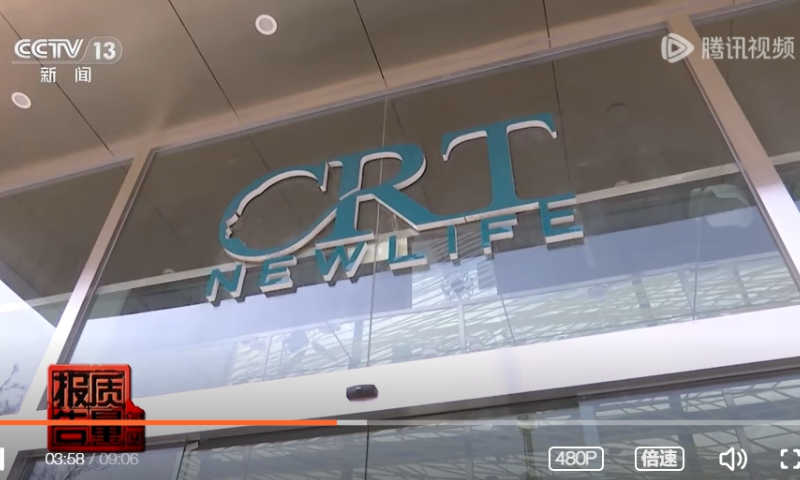Woman discovers camel protein in fillers after spending over $75,000 on breast augmentation

Photo: Screenshot of video from CCTV News
A woman who spent 546,800 yuan ($75,538) on breast augmentation discovered that the fillers contained proteins sourced from camels, bats, and chimpanzees, and the case has sparked heated discussion online. It has also shed light on safety concerns within the rapidly growing cosmetic surgery industry in China.
In 2022, Lanlan was introduced to a beauty and cosmetic surgery institution called "Chu Mei Ren" in Beijing, which touted a breast augmentation technique that involved no surgery or synthetic implants, instead utilizing the consumer's own blood tissue for cultivation, promising a 20-minute procedure resulting in larger breasts.
The institution's director claimed their technique held an exclusive national patent and normally charged 1.94 million yuan for the procedure. However, through a referral discount, Lanlan managed to negotiate the fee down to 546,800 yuan.
According to Lanlan, the operation lasted only 20 minutes, leaving no visible scars. However, over time, she noticed asymmetry and experienced persistent discomfort in her breasts.
During a routine medical examination, a breast ultrasound revealed foreign bodies within her breasts. Subsequent examinations in two different hospitals confirmed the presence of unknown injection fillers and non-native tissue, as well as implants.
Lanlan underwent further surgery, costing an additional 200,000 yuan, to remove the foreign substances. Despite extensive cleansing, traces of the fillers remained, posing potential health risks.
Analysis of the filler samples revealed proteins from various animal sources, including camels, bats, and chimpanzees. Lanlan, now seven months pregnant, faces anxiety over breastfeeding due to the complications from her breast augmentation surgery.
In addition, Lanlan's mother also underwent the same procedure with the same institution, spending over 600,000 yuan, and she experienced breast pain and deformities as well.
The surgeon who operated on Lanlan was found to be a general surgeon at a hospital in Beijing, with no record of multiple institutional practices, violating regulations that require such a record, according to CCTV.
Recently, CCTV reporters revisited Chu Mei Ren institution for investigation but found it closed.
This case sheds light on the safety concerns within the rapidly growing cosmetic surgery industry in China. According to data released by the National Health Commission in January, there are a total of 18,584 compliant medical aesthetics institutions in China (excluding public institutions and private comprehensive ones).
Data from the iResearch institute showed that as of 2020, only 12 percent of medical aesthetic institutions in China were legally compliant, with over 80,000 "black institutions" operating. Legally compliant physicians accounted for only 24 percent, while the number of illegal practitioners is more than 100,000.
The regulatory authorities in China have been intensifying their supervision of the medical aesthetics industry. On April 9, the State Administration for Market Regulation issued a notice announcing the launch of a nationwide campaign from April to November 2024 to regulate advertisements in key sectors including the medical aesthetics industry, which will target unauthorized ads promoting unrealistic beauty standards and crack down on platforms and influencers promoting illegal medical aesthetics during live streams.
In May 2023, 11 government departments, including the State Administration for Market Regulation, jointly issued guidelines asserting that cosmetic procedures must fall under medical activities, requiring compliance with healthcare laws.
The increased supervision of the medical aesthetics industry aims to regulate registration, qualification verification, and information sharing, as well as curbing illegal practices and ensuring public safety.
Global Times
